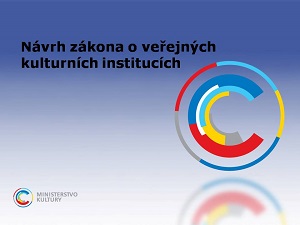
The bill on public cultural institutions was approved by the government today
 |
According to Baxa, the concept has been present in the Czech cultural environment for about 20 years, but it has never reached the stage of functional legislative wording. The draft law is inspired by operational models in Austria and will allow multi-year funding or co-establishment of cultural institutions by two self-governing bodies, the culture minister said. It will also enable the position of director to be distanced from the founder; the director will be appointed by the board of directors.
The law is expected to establish a new type of legal entity, a public cultural institution, as an alternative to existing contributory organizations. The aim is to depoliticize institutions, ensure the participation of the professional public in their management, ensure financial stability, and make financing more efficient. Cultural institutions would also be able to acquire funds not only from the founder but also from co-founders. For example, city theaters could be supported not only by the city but also by the region.
"The law on the public cultural institution has been discussed in detail and carefully with cultural actors. From the beginning, it was developed in cooperation with them, as cultural actors, especially from the theater sector, have long called for such legal regulation," stated the spokesperson for the Ministry of Culture, Jana Malíková, earlier.
The Ministry of Culture revised the draft after comments made by the Government's Legislative Council last September. In the original proposal from May 2023, the ministry worked on the introduction of a specific institute, but mentions in the explanatory report to the new wording that such a solution is problematic. The original proposal also aimed to allow a different financial evaluation than based on standard pay scales; this option has been removed in the current wording. "Employees of the VKI will be compensated with salaries similar to those in a contributory organization," states the explanatory report. According to Malíková, the original intention raised significant concerns among employees. "Therefore, in the revised proposal, remuneration within employment relationships is based on salaries," she added.
A public cultural institution can be founded by the state, region, or municipality. The transformation of existing contributory organizations into public cultural institutions will be voluntary on the part of the founders. The legal form of contributory organizations, which the state must care for by law, will continue to be maintained. The highest authority of the public cultural institution will be the board of directors, appointed by the founder, with the statutory body being the director elected by the board and the supervisory body being the supervisory board, also appointed by the founder. The founder will finance the public cultural institution according to a multi-year financial plan, followed by the annual budget of the VKI.
The English translation is powered by AI tool. Switch to Czech to view the original text source.
0 comments
add comment









